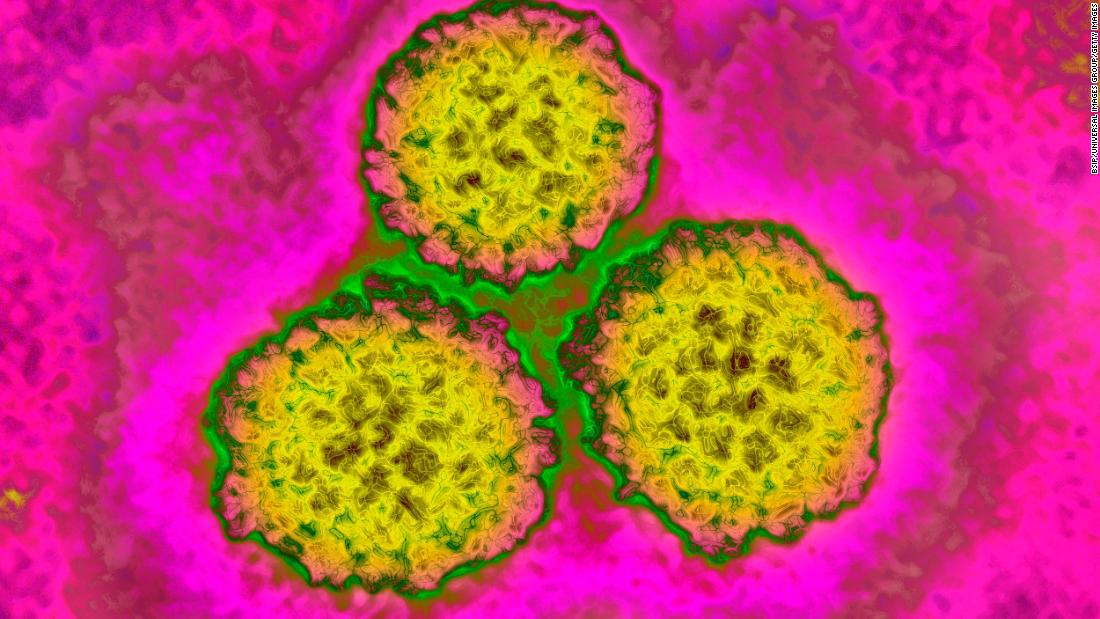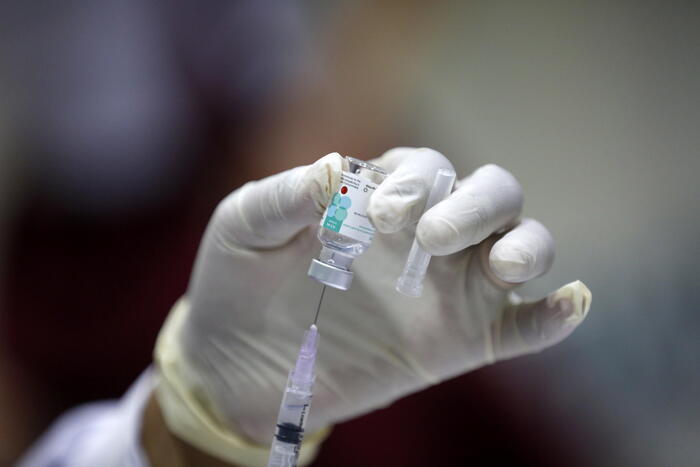A single papilloma vaccine would help 1:33
(CNN) ––
The human papillomavirus, known as HPV, is a very common sexually transmitted disease, according to the US Centers for Disease Control and Prevention (CDC).
In fact, about 43 million HPV infections were recorded in 2018, most of them in older teens and young adults, according to the CDC.
People with the human papillomavirus are at risk of developing genital warts and some types of cancer, Debbie Saslow told CNN.
Saslow is the CEO for HPV and Gynecologic Cancers for the American Cancer Society.
Mexican researchers eliminate 100% of the human papillomavirus with photodynamic treatment
She has spent almost 25 years studying the human papillomavirus and works to raise awareness about the vaccine against this sex disease.
This conversation has been edited and condensed for clarity.
What are the effects of the human papillomavirus?
Debbie Saslow:
Almost everyone will get HPV at some point, and most people will not have any symptoms.
Some types of HPV can cause warts on the skin, others can cause genital warts, and some can cause cancer.
The types of HPV that cause cancer are transmitted through intimate skin-to-skin contact, so it mainly occurs during sexual activities.
The most common human papillomavirus cancer in women is cervical cancer.
Although some women are not familiar with their cervix, many go to the gynecologist to be screened for this type of cancer with a Pap test or HPV test.
The most common HPV cancer in men is throat cancer, although women can get it too.
It is located in the oropharynx, which is the back of the throat and tonsils.
The other four cancers are anal cancer in men and women, penile cancer in men, and vulva and vagina in women.
advertising
What You Should Know About Human Papillomavirus 3:49
Not many people get to the point of having symptoms because screening tests are quite common in the United States.
However, pain after sex and abnormal bleeding are two symptoms of cervical cancer.
How can people reduce their chances of getting HPV?
Saslow:
Getting vaccinated can prevent more than 90% of human papillomavirus cancers and more than 90% of genital warts.
It is recommended for boys and girls ages 9 to 12, but people up to age 26 can get the vaccine.
Secondary prevention for women ages 25 to 65 with a cervix is cancer screening at this location.
By detecting and treating or removing cancer or the cervix, you can actually prevent cancer.
The preferred screening method is a human papillomavirus test every five years.
Unlike a Pap test, the HPV test predicts the future.
For example, if someone tests positive for HPV two years in a row, even if the cells of the cervix are normal, it is a sign that the infection could progress to precancer.
If someone has a negative human papillomavirus test, their chances of getting cervical cancer in the next 5 to 10 years are close to zero.
Here we tell you the importance of the Papanicolaou 3:22
HPV testing is not recommended for men because there is not one for them.
The only exception is anal cancer.
It is not a national recommendation, but the anal exam can be used for men who have sex with men.
Condoms can slightly reduce the risk of human papillomavirus transmission.
It is a good idea to use them anyway to reduce the risk of other viruses.
If someone has sex with multiple partners, should that person be tested more often?
Saslow:
Sexually active people with more than one partner at a time are at higher risk for HPV.
However, if they do get the human papillomavirus, they are not at higher risk of pre-cancer or cancer faster than someone who contracted HPV from a mutually monogamous partner.
The risk is higher but the detection interval does not change.
The time from human papillomavirus infection to pre-cancer is a decade.
So five years between screenings is really safe.
The time from exposure to HPV infection to cancer is approaching 20 years, so we have a long time to find it.
What would you say to parents concerned about their children becoming sexually active sooner if they get vaccinated?
Saslow:
Many studies show that this is not true at all.
There are studies in which researchers asked whether there was a difference in the number of sexually transmitted diseases, the age at which people started having sex, or unwanted pregnancies, and the general answer is no.
Human Papillomavirus Vaccine Prevents Spread With Just 2 Doses
For parents who think this is true: Do you tell your children, when you teach them to drive, not to fasten their seat belt because this will increase their speed?
No, you don't say that.
And it's exactly the same logic with the human papillomavirus vaccine.
We recently changed the wording of the guide to strengthen the recommendation to vaccinate at 9 years of age.
Before he pointed out that you should be vaccinated at 11 or 12 years old, or that you could start at 9 years old.
Now we only say 9 to 12. Studies have shown that when we offer a vaccine to a 9 or 10 year old, the parents are not thinking about their sexuality.
When children are 11 or 12 years old, that is where parents' minds tend to consider so.
Should College Students Get the Human Papillomavirus Vaccine?
Saslow:
Remember that if the vaccine is not given before age 12, it is still recommended until age 26. Adults up to age 45 can ask their healthcare provider.
However, effectiveness drops dramatically around the college years, around 18 years of age.
College is a good time to find people who didn't get the vaccine or whose parents chose not to get vaccinated, because then they can make a decision for themselves.
By the time you get out of college, the effectiveness of this vaccine is low.
Mainly, that's because people are already exposed to HPV and the vaccine only works before exposure.
Sexually Transmitted Diseases Human Papillomavirus HPV













